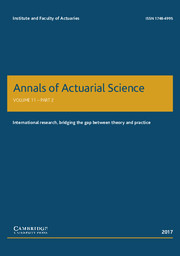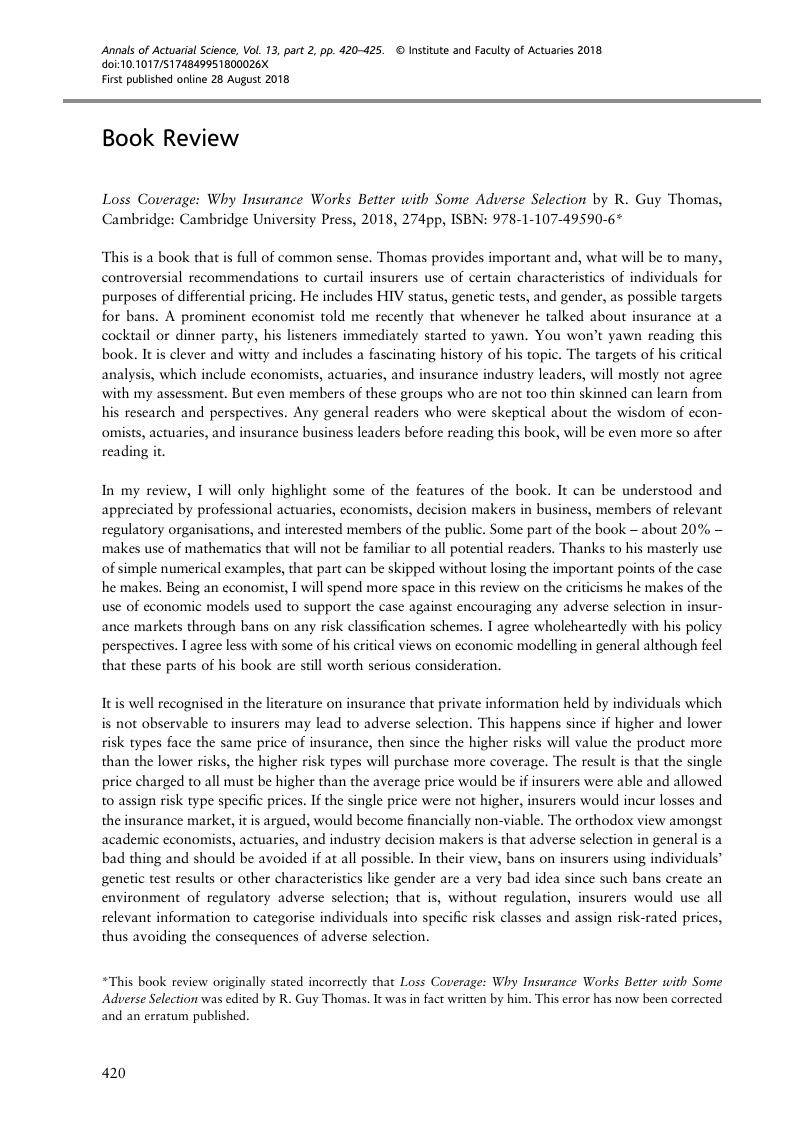Crossref Citations
This article has been cited by the following publications. This list is generated based on data provided by Crossref.
Hoy, Michael
2019.
Loss Coverage: Why Insurance Works Better with Some Adverse Selection, Edited by R. Guy Thomas, Cambridge: Cambridge University Press, 2018, 274pp, ISBN: 978-1-107-49590-6 – ERRATUM.
Annals of Actuarial Science,
Vol. 13,
Issue. 2,
p.
426.



